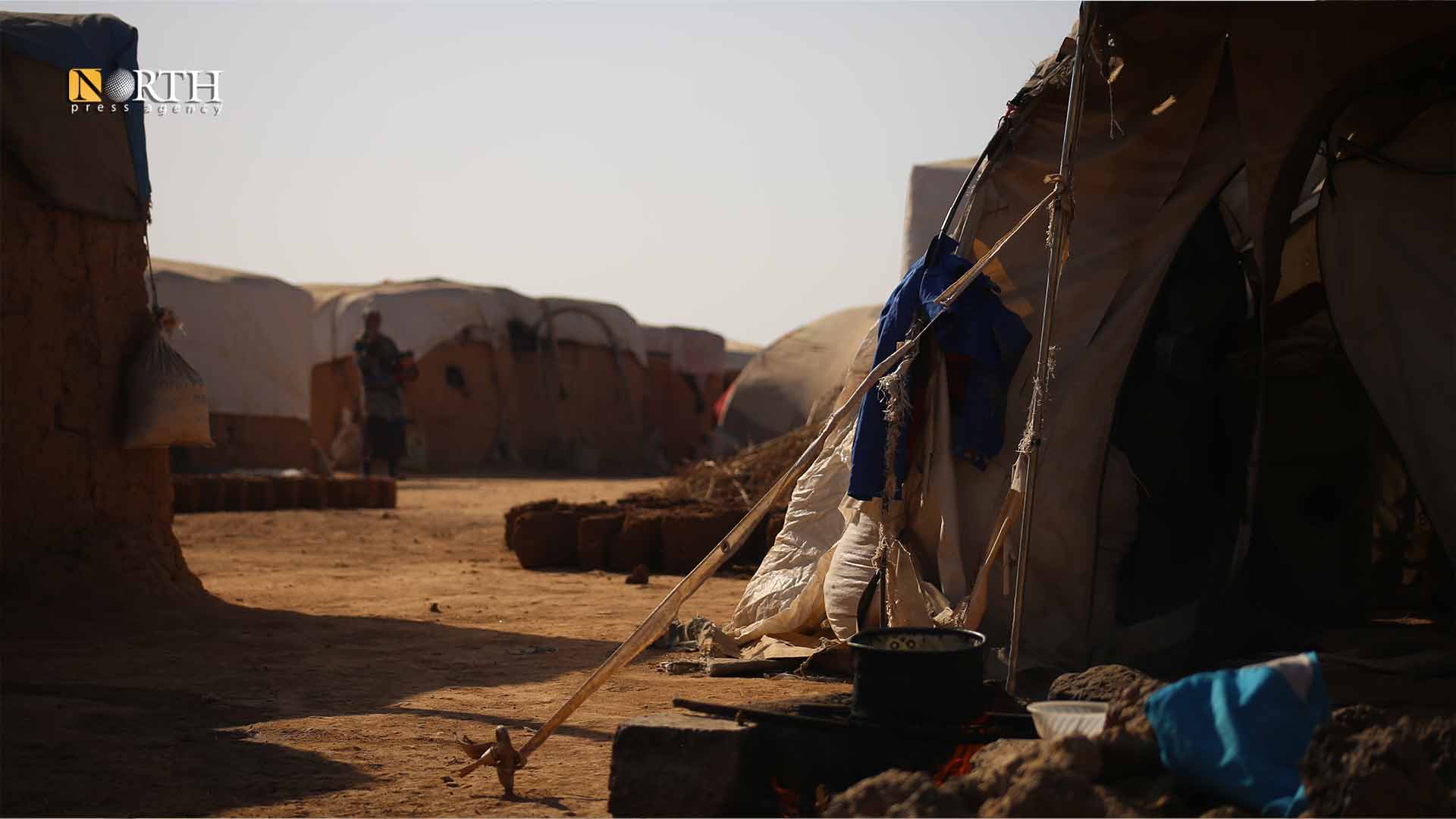Closure of Ya’rubiyah crossing deprives millions of NE Syria’s IDPs from aid
RAQQA, Syria (North Press) – The closure of Tel Kocher (al-Ya’rubiyah) crossing and the cessation of humanitarian aid has deprived more than two million people in northeast Syria from aid, a local civil organization in the city of Raqqa, northern Syria, said on Tuesday.
The Syrian-Iraqi Tel Kocher/al-Ya’rubiyah border crossing, which is the only crossing through which UN aid may enter the regions of Syria’s northeast, has been closed for more than a year after Russia and China vetoed in the UN Security Council to close it.
Manaf al-As’ad, an official at the House of Citizenship Organization in Raqqa said the closure of the crossing has affected more than two million people living in camps in northeastern Syria, after the cessation of aid, especially medical aid.
More than 40 international relief and medical organizations have permanently suspended their work in the area after the crossing was closed, he added.
Humanitarian aid enters Syria through Bab al-Hawa crossing, but the support coming from it to the Autonomous Administration areas is meager and not sufficient to cover the needs of the region, according to al-As’ad.
International organizations operating in the region rely on limited capabilities and local markets to implement their projects, according to activists.
He appealed the international community to intervene and expedite the procedures by reopening the crossing, because its closure caused a humanitarian crisis in the camps and in the region in general.
On 7 June 2021, a health official in AANES said the closure of Tel Kocher crossing stopped the arrival of UN aid to Syria and reduced the delivered materials by 70%.
The closure of the crossing exacerbates the suffering of the IDPs in the camps and the lack of financial funding for humanitarian relief projects and the provision of aid, according to statements by officials in the Autonomous Administration.
Muhammad Sha’aban, a civil activist in Raqqa, said closing the crossing and restricting humanitarian aid to Bab al-Hawa crossing in northwest Syria is a proof that the humanitarian issue has been politicized.
He added that the indifference by the countries involved in the Syrian issue regarding the humanitarian catastrophe in the camps, is a proof that their priority is to achieve their interests, “the humanitarian situation must be isolated from political issues.”
He told North Press that the closure of the crossing significantly affected the lives of hundreds of thousands of residents, and increased their suffering during the ongoing war until now.
On November 29, the Platform of Civil Society Organizations in Syria’s northern city of Raqqa stated that political bargaining between Russia and Syria hinder the delivery of humanitarian assistance through Tel Kocher border crossing to those who need it urgently.
The platform called the UN Security Council and international actors to reconsider the decision of closing Tel Kocher crossing.
In August, the AANES said in a statement that the United Nations agencies, through their official offices in Damascus and Qamishli, are following the policy and whims of the Syrian government by selecting projects and imposing conditions for partnership with local bodies linked to the Syrian security services.
On 24 November, Sheikhmous Ahmad, co-chair of the Refugees and IDPs Bureau of the AANES, told North Press that the IDPs are Syrian people in the first place and are paying the bill of international powers that intervened in the Syrian affairs.
He added that the camps housing IDPs in northeast Syria have extreme tragic conditions especially with the advent of winter.
Sha’aban called on the international community and human rights and international organizations to contribute and increase efforts to reopen the al-Ya’rubiyah crossing, and save the region’s residents from a new humanitarian crisis in the region.
Muhammad al-Khalil, a civil activist in Raqqa, said the closure of the crossing deteriorated the humanitarian situation, since the aid that reaches the area is like too few.
He added that the scarcity of aid has caused a large gap in the basic needs of those who deserve it, and this gap can only be filled by reopening the al-Ya’rubiyah crossing.

